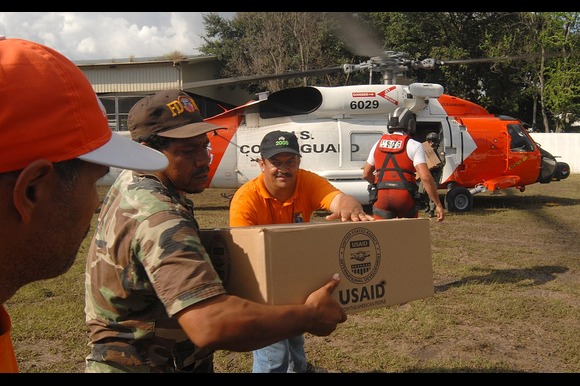The United States Agency for International Development (USAID) has officially ceased operations following a systematic rollback of its programmes under President Donald Trump, who criticized the agency for what he described as excessive and ineffective spending.
As of March, more than 80% of USAID’s programmes had already been terminated. On Tuesday, the agency’s remaining functions were formally transferred to the State Department, marking the end of an era for the US government’s global aid arm—long considered the largest provider of foreign assistance in the world.
The move has sparked strong condemnation from humanitarian leaders and former US presidents. Barack Obama and George W. Bush publicly criticized the closure during a virtual conference that included U2 frontman and humanitarian advocate Bono, addressing thousands of USAID employees and affiliates.
A newly released analysis in The Lancet medical journal warned that the collapse of USAID programmes could result in more than 14 million additional deaths by 2030, with children accounting for roughly one-third of those lives at risk. The authors described the projections as “staggering,” raising alarms about the global consequences of America’s retreat from aid leadership.
Responding to the report, a spokesperson for the State Department told AFP that the study was based on “incorrect assumptions” and insisted that the US remains committed to aid, albeit through what they termed a “more efficient” approach.
USAID was established in 1961 and employed approximately 10,000 people, two-thirds of whom were stationed abroad, according to data from the Congressional Research Service. Its dismantling began early in Trump’s second term, following the appointment of billionaire Elon Musk—then a presidential adviser—to lead a broad effort to reduce the federal workforce.
Trump’s administration framed the changes as part of its broader “America First” strategy. On Tuesday, Secretary of State Marco Rubio announced that the remaining 1,000 aid initiatives would now fall under his department’s purview, declaring, “This era of government-sanctioned inefficiency has officially come to an end.” In a statement posted on Substack, Rubio added, “Under the Trump Administration, we will finally have a foreign funding mission in America that prioritizes our national interests.”
The cuts included a wide array of programmes, ranging from fitting prosthetics for wounded Ukrainian soldiers to de-mining war zones and combating Ebola outbreaks in Africa. On Wednesday, USAID’s official website still displayed a notice confirming that all direct-hire personnel had been placed on administrative leave starting February 23.
Critics argue the shutdown not only undermines humanitarian efforts but also weakens US global influence. George W. Bush, whose presidency saw the launch of PEPFAR—the President’s Emergency Plan for AIDS Relief—highlighted that his initiative had saved more than 25 million lives and questioned whether such gains were not in America’s strategic interest. “You’ve showed the great strength of America through your work—and that is your good heart,” Bush said in a recorded statement. “Is it in our national interests that 25 million people who would have died now live? I think it is, and so do you.”
Obama, echoing Bush’s sentiments, called the agency’s closure a “travesty” and “a tragedy,” praising USAID staff for their dedication to some of “the most important work happening anywhere in the world.”
Bono, long active in anti-poverty campaigns, told attendees, “They called you crooks, when you were the best of us,” mourning the humanitarian costs that may now follow.
The ripple effects of the USAID shutdown are already being felt globally. Following Trump’s lead, several other nations—including the UK, France, and Germany—have introduced their own reductions in foreign aid. Last month, the United Nations warned that it was facing “the deepest funding cuts ever to hit the international humanitarian sector.”






